Project A (1983)
Directed by: Jackie Chan, Sammo Hung
Written by: Edward Tang, Jackie Chan
Starring: Dick Wei, Jackie Chan, Sammo Hung, Yuen Biao
AKA A GAI WAAK
Hong Kong
AVAILABLE ON BLU-RAY: NOW, in EUREKA ENTERTAINMENT’S ‘JACKIE CHAN’S PROJECT A’ AND ‘PROJECT A PART TWO’ BOXSET
RUNNING TIME: 106 mins
REVIEWED BY: Dr Lenera, Official HCF Critic
Hong Kong 1803: pirates led by San-po, and in league with gangsters Chiang and Mr. Chou, are have been raiding ships. When two Coast Guard ships mysteriously blow up, Sergeant Dragon Ma and his squad are forced to become regular police officers and undergo hard training. However, somebody within the police force is selling guns to San-po, and Ma can’t even seem to be able to arrest gangsters without being reprimanded….
Project A was the first of the Hong Kong Jackie Chan-starring features which broke away from the traditional martial arts movie and introduced the mixture of more diverse action, humour and insane stunts that became the format for a Chan movie for over two decades. And there are time when I’m not sure that he’s ever quite topped it, even though he may have matched it. Many successive efforts may contain more elaborate fight sequences, more bonkers stunts [though Project A has one of his most iconic], funnier comedy scenes etc, and one often tends to think of Chan’s films by their highlights, “oh yes, that’s the one in which he did this and did that”, which I’m sure he doesn’t mind as he usually thought up the major set pieces first and then tried to form a story around them. But I think that Project A flows a little better as a film then much of what followed, even maybe the much admired Police Story [which I do love myself] which most tend to hold up as his masterpiece. While I adore many of them, Chan’s movies can suffer from uneven pacing because of the way they’re constructed. Project A doesn’t really have that problem. Also, later films would often have slightly less thrills but more effort was spent on perfecting them. Project A is absolutely jam packed with memorable bits of business large and small, so much so that it’s almost impossible to take it all in on a first viewing!
Chan had just had an unsuccessful stint in the US, and then Dragon Lord was a disappointment, but Winners And Sinners, a comedy by and starring Chan’s childhood Peking Opera-performing buddy Sammo Hung [the group of seven were called the Seven Little Fortunes] with small appearances from another, Yuen Biao and Chan himself, was a hit. So Chan brought them onto Project A, he and co-screenwriter Edward Tang adding their characters into the already written script. The original title was Pirate Patrol, but it was changed to stop other Hong Kong producers rushing to make films about pirates. During the shooting of the bicycle chase, Chan halted filming to go and watch E. T. The Extra-Terrestrial to ensure the scenes weren’t similar. As for his clock tower jump inspired by Harold Lloyd’s Safety Last, he stood for a week on the ledge, then hung for ages until deliberately losing his grip – whereupon he bounced off one of the awnings he was supposed to hit and hit the ground with his skull. Of course after being treated in hospital he did the jump again – and twice to get it totally right. Hung shot some of the fight scenes, and towards the end of filming, Chan was overcome by helming such a big production and couldn’t work out the climax, so Hung and Tang took over. One major chase scene with Chan and Hung handcuffed together was cut. In Hong Kong the film was a smash, though it didn’t get the overseas attention that Police Story later did. The export version lost most of Hung playing mahjong, while the scene was totally missing from the typically crappy US DVD from Mirimax [surprise surprise] which removed eight minutes of comedy plus the end title bloopers and added a new score. This was also the first of Chan’s movies to feature extra outtakes in the Japanese version.
Chan had been building up to his ‘good hearted everyman who can do martial arts’ screen persona in several previous films, but now the character, one that would virtually be the same for many successive outings, is fully fledged right from his very first scene when he asks Captain Chi for weapons to fight the pirates. Chi has a go at him and Ma replies that “a simple No would have been enough”, after which he’s told to stand up straight and salute which he does, before he marches off in an exaggerated manner. Ma does have respect for authority, but just likes to have a little fun too. Then we get to the first big set piece of the film, the most elaborate bar brawl you will probably every see, as members of the Coast Guard and the police taunt each other until, despite Ma’s efforts to prevent it, mayhem erupts where one is as likely to get a plate of food in the face as one is likely to be punched or kicked, and already there’s so much stuff going on that you just want to rewind the film. Some gags that Chan would repeat get early airings here, such as Chan and Biao smashing each other with chairs, pretending not to be hurt, then writhing in pain. And this scene really begins the Chan film tradition of loads of stuntmen falling onto the hard floor at great speed with nothing to break their fall! These guys are nuts!
Biao plays Captain Chi’s nephew, Hong Tin-tsu, a police captain who’s tasked with training his new recruits in several comedy scenes full of obvious and often old [like one with a hand grenade, and another when one guy is humiliated and his bum shows, ho ho ho!] but still often amusing gags which certainly keep us going until the action begins in earnest and just keeps on going on going, lightning speed fights, hectic chase sequences and what can only be described as Jackie Chan Magic racing past the viewer. What do I mean by Jackie Chan Magic? I mean things like Ma being handcuffed to a pole, but still managing to beat off some bad guys until he somehow manages to climb to the top of the pole and free himself. The plot? Well, it’s just involving enough without getting in the way of what we’ve really come to see. It seems that somebody in the police force doesn’t want the pirates to be caught and recruits petty criminal Fei to assist him in selling rifles to the pirates, but Fei is also buddies with Ma. Frustrated with the corruption in the police force, Ma tears off his badge, but of course this means that he can do what needs to be done more easily – well, if only those pirates will leave him alone. Will the fickle Fei help him or hinder him? Chan and Hung are terrific together here with their character’s like/dislike relationship and the uncertainty of who’s side Fei is on [actually it’s his own]. There’s one main female character, Winnie Shih the Admiral’s daughter, though she doesn’t get to do much. She unwittingly distracts the men when they’re being trained and later finds herself thrown into the middle of the fray when Ma and Fei are chased into her house. Chan gets a funny scene where he tries to impress her by exaggerating his feats and gets a kiss on the cheek for his trouble – though as is often the case in his films, that’s about as far as it goes in terms of romance.
We get a bit of a breather before the concluding section when Chan and company invade the island of the pirates. Chan’s disguise is absurdly obvious, a password gag goes on for too long, and on first viewing I wasn’t sure about our three main good guys all taking on the main villain together, it just didn’t seem fair, though when I saw the movie again it didn’t bother me – obviously San-Po is so formidable it takes three of them to best him. He’s played by Dick Wei who tended to play villains, and Wei certainly looks and acts the pirate captain, swaggering about with loads of tattoos. The martial arts highlight though could be an earlier battle, showcasing best Chan’s now fully formed screen fighting style, still containing many martial arts techniques but making them just part of a more ‘anything goes’ style even incorporating elements of street brawling [of course later on he would bring in more comedy]. This scene ends with another example of Jackie Chan Magic in which a chandelier helps him to get to the top of some stairs he’d been thwarted from ascending several times. He even runs up a wall, though I’m sure a wire must have been used for that [surely?….]. Of course there’s also the clock tower jump where we are treated to not one but two takes with the one where he was badly injured saved for the outtakes, plus a brilliant silent comedy-style bicycle chase [and he even uses the bicycle as a weapon]. Though I’d already seen Battlecreek Brawl, I think it was this scene that truly made me a Chan fan when an episode of a TV series called Son Of The Incredibly Strange Film Show [included in Eureka’s Police Story 1 and 2 set] about Chan showed it and I fell in love [in a certain way] there and then.
Project A [which was the real name of a mission against pirates] is set in ‘early Hong Kong’ going by an opening caption, though you could probably place it taking place around the start of the 20th Century. I guess the year doesn’t really matter anyway, the period detail making things convincing enough. Some may find the music score by Michael Lai to be a bit cheesy with its silly march main theme and weak poppy version of the famous second movement of Beethoven’s 5th Symphony that starts up when somebody’s slammed into a record player during the bar brawl, though I do love his chase theme that adds even more energy to the action and enhances a childlike sense of fun. Despite all the amazing thrills and spills he’s given us since, there’s still an exuberant freshness about Project A which makes it hold up extremely well, as if he decided to throw everything he could think of into it just in case it flopped and he may have not been able to make any more. Is it his best? That’s hard to say for me personally as I tend to rate my top five Chan films about equally. But this ridiculously entertaining and ground breaking action comedy still soars.
I had some minor issues with Eureka’s Police Story 1 and 2 set, but could find nothing whatsoever to complain about with this one. Again, the films were restored by Ritrovata, but to my eyes contain none of the flaws that are usually part of their restorations. Everything just looks about as perfect as you can get from a 1983 film shot on cheap stock: the colours, the level of grain, the detail. A quick comparison with my Hong Kong Legends DVD revealed the subtitles to be different, but probably a more authentic translation. I watched most of the film with the original Cantonese mono soundtrack which is just fine. Some switching to the Cantonese and English 5.1 options revealed the Cantonese one to be considerably quieter and have slightly more dynamic range, though personally I usually tend to prefer original mono with older films as that’s how they originally sounded. Eureka have listed the English dub track from vhs as an alternate dub track, though in reality it’s the same dub as the one featured on the 5.1 English track, though louder and actually better balanced. The dub is okay, if not a particularly good example.
Sadly the promised interview with writer and producer Edward Tang didn’t materialise, but never mind, there’s plenty else to get your teeth into. Of course Bey Logan is absent due to reasons you can discover with ease, so if you have the CineAsia DVD you may want to hold on to it for the lengthy ‘making of’ and commentary. If you don’t, then what we have here should still satisfy. Eureka have ported over most of the older interviews [the rest presumably are included with the sequel – we shall see], and added 38 minutes of good old Tony Rayns. He provides an enlightening look at the situation with the Hong Kong film industry before Project A was made as well as delving into Chan’s childhood and career. He does talk about Project A, but not really enough for my liking, and reckons that Chan didn’t technically direct it. Of course I’m not as knowledgeable as him, but it seems odd. Still a good and informative interview though – even if Rayns just can’t avoid mentioning King Hu at any given opportunity.
The older interviews follow. Lee Hoi San was a martial artist who appeared in a few films including Project A. He gives an interesting insight into what it’s like working on films in a martial arts capacity, followed by a demonstration. Then we have a very exuberant Yuen Biao talking of his relationship with the other Little Fortunes especially Sammo Hung, finishing with a message to his UK fans. Dick Wei appears to have been visited in his house and goes into his start in the industry and several roles. Throughout these interviews, clips from the likes of Eastern Condors and Magnificent Butcher appear which just leads me to pray that we will see them on Blu-ray too. I guess it depends on how well these Chan films sell, but one can dream. Anyway, the interviews conclude with composer Michael Lai giving an interesting insight into his composing technique and coming up with the main theme for Project A, Like Biao, he seems overjoyed to be talking to the UK market.
I was most excited when I noticed that Eureka had been able to include the deleted scenes that were only previously seen on the IVL Hong Kong DVD. We get more training including Chan and Biao facing off again, a dinner eating scene, and best of all a scene set in a brothel obviously during the chase sequence where Ma and Fei are trying to hide. Chan’s moment with a deaf hooker is funny, but I guess that he wanted the scene cut as it didn’t tie in with his squeaky clean screen image even though nothing sexual happens on screen. It’s good though and I think it should have been left in. The handcuff sequence isn’t here though. And we finish with Chan introducing the film in 1984 and along with Hung and Biao wishing people a Happy New Year. Some nice, if brief, behind the scenes footage I’d never seen before.
Classic Jackie Chan with loads of special features? Of course the Doc Thoroughly Recommends.
SPECIAL EDITION DETAILS
*1080p presentation, sourced from brand new 2K restoration
*Original Cantonese audio track
*Restored 5.1 Cantonese and English audio options
*Optional English subtitles
*New video interview with Asian cinema expert Tony Rayns [38 mins]
*Interview with actor Lee Hoi San [22 mins]
*Interview with actor Yuen Biao [18 mins]
*Interview with actor Dick Wei [14 mins]
*Interview with composer Michael Lai [17 mins]
*Deleted Scenes [10 minutes]
*Alternate outtakes for Project A from the Japanese version of the film [5 mins]
*Chinese Lunar New Year introduction
*Box Set Exclusive – Collector’s booklets for each film, featuring new essays by James Oliver; rare archival imagery; and full credits for both films

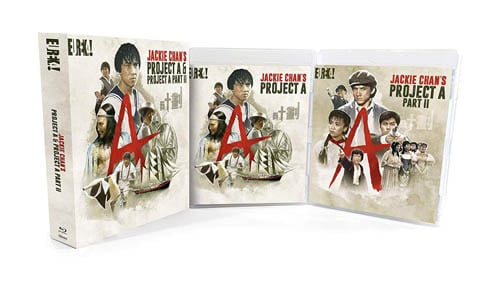
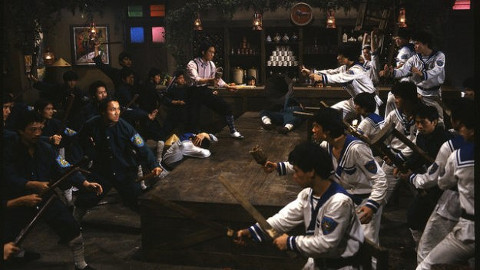
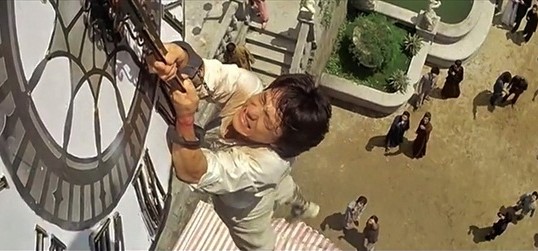



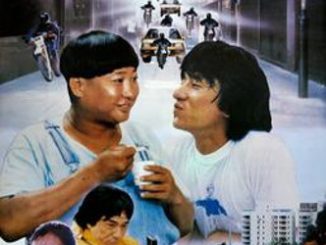
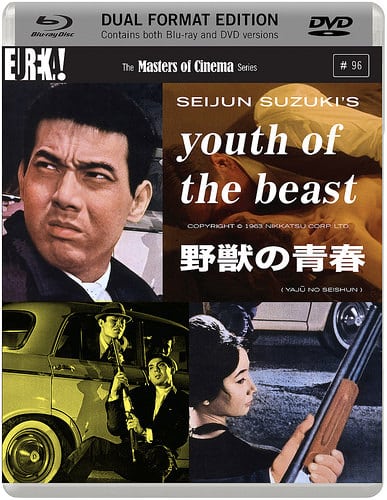
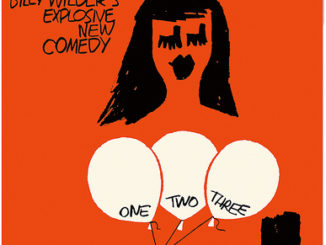
Project A is very appropriately named! Tough to give any one of the old classics top spot but it’s somewhere between this and Police Story.